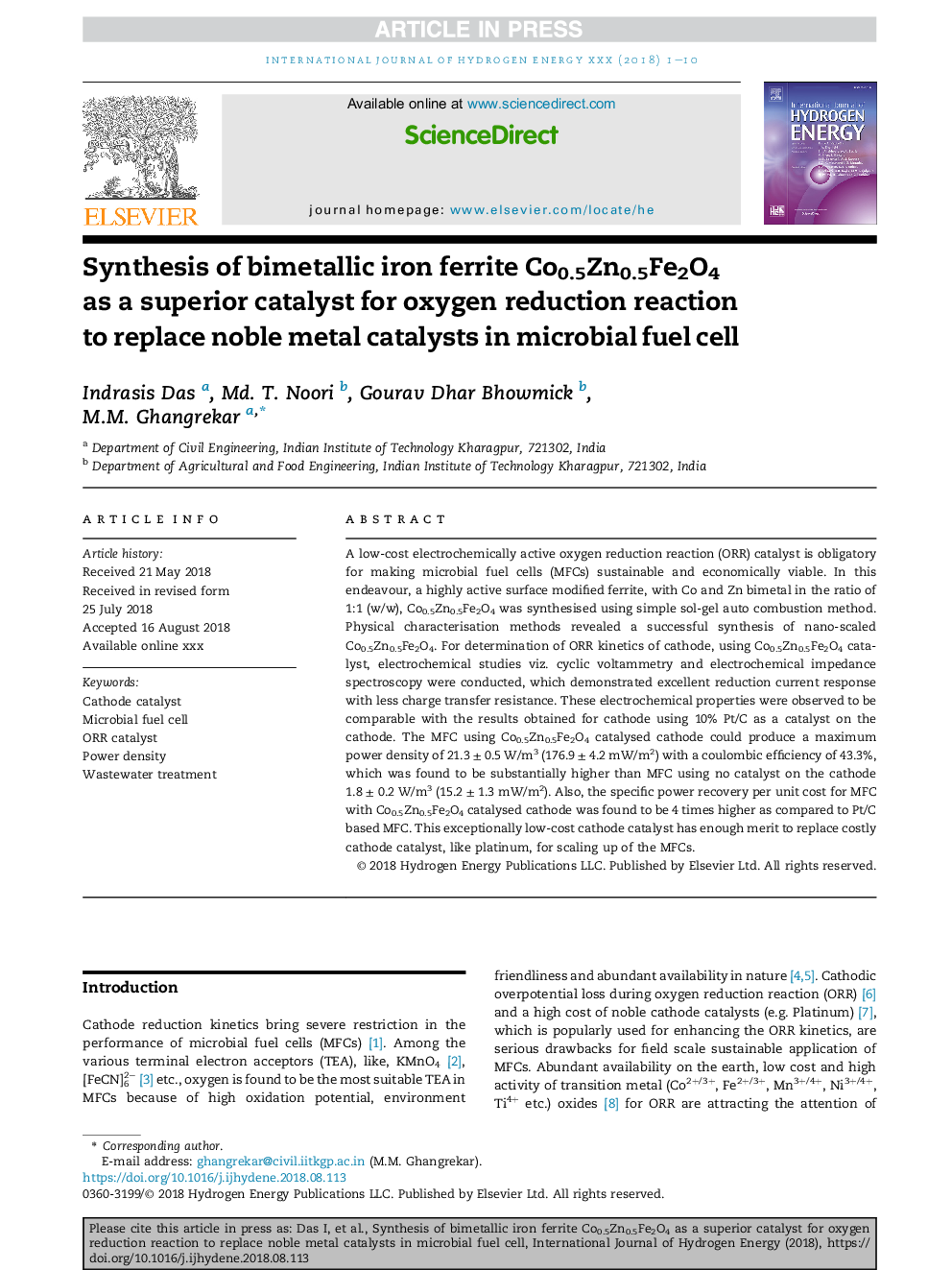| Article ID | Journal | Published Year | Pages | File Type |
|---|---|---|---|---|
| 11011667 | International Journal of Hydrogen Energy | 2018 | 10 Pages |
Abstract
A low-cost electrochemically active oxygen reduction reaction (ORR) catalyst is obligatory for making microbial fuel cells (MFCs) sustainable and economically viable. In this endeavour, a highly active surface modified ferrite, with Co and Zn bimetal in the ratio of 1:1 (w/w), Co0.5Zn0.5Fe2O4 was synthesised using simple sol-gel auto combustion method. Physical characterisation methods revealed a successful synthesis of nano-scaled Co0.5Zn0.5Fe2O4. For determination of ORR kinetics of cathode, using Co0.5Zn0.5Fe2O4 catalyst, electrochemical studies viz. cyclic voltammetry and electrochemical impedance spectroscopy were conducted, which demonstrated excellent reduction current response with less charge transfer resistance. These electrochemical properties were observed to be comparable with the results obtained for cathode using 10% Pt/C as a catalyst on the cathode. The MFC using Co0.5Zn0.5Fe2O4 catalysed cathode could produce a maximum power density of 21.3 ± 0.5 W/m3 (176.9 ± 4.2 mW/m2) with a coulombic efficiency of 43.3%, which was found to be substantially higher than MFC using no catalyst on the cathode 1.8 ± 0.2 W/m3 (15.2 ± 1.3 mW/m2). Also, the specific power recovery per unit cost for MFC with Co0.5Zn0.5Fe2O4 catalysed cathode was found to be 4 times higher as compared to Pt/C based MFC. This exceptionally low-cost cathode catalyst has enough merit to replace costly cathode catalyst, like platinum, for scaling up of the MFCs.
Related Topics
Physical Sciences and Engineering
Chemistry
Electrochemistry
Authors
Indrasis Das, Md. T. Noori, Gourav Dhar Bhowmick, M.M. Ghangrekar,
